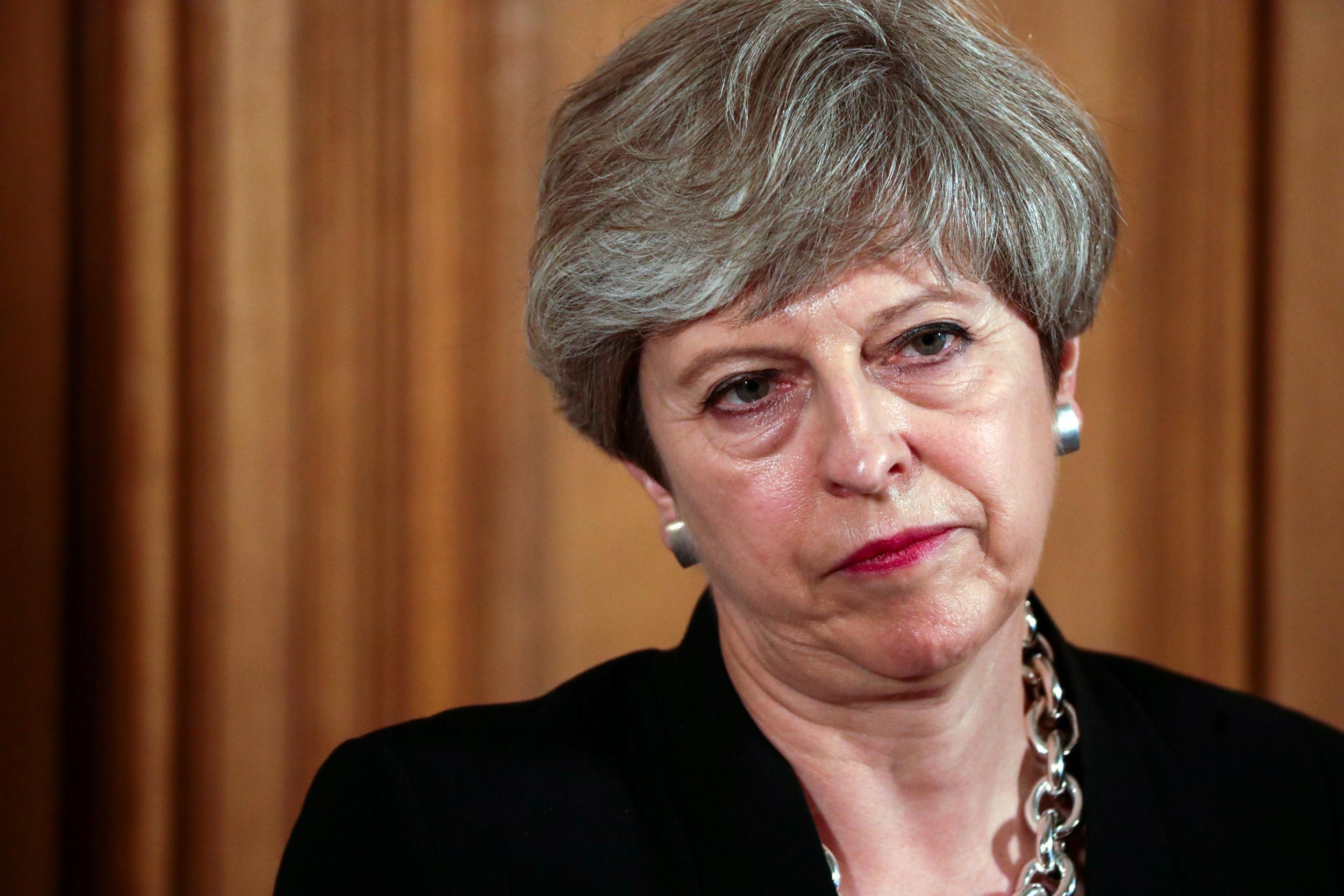Queen's Speech: Theresa May's lack of power exposed by absence of health or education reform bills
Plans to open more grammar schools – the Prime Minister's flagship policy last summer – have been abandoned

Your support helps us to tell the story
From reproductive rights to climate change to Big Tech, The Independent is on the ground when the story is developing. Whether it's investigating the financials of Elon Musk's pro-Trump PAC or producing our latest documentary, 'The A Word', which shines a light on the American women fighting for reproductive rights, we know how important it is to parse out the facts from the messaging.
At such a critical moment in US history, we need reporters on the ground. Your donation allows us to keep sending journalists to speak to both sides of the story.
The Independent is trusted by Americans across the entire political spectrum. And unlike many other quality news outlets, we choose not to lock Americans out of our reporting and analysis with paywalls. We believe quality journalism should be available to everyone, paid for by those who can afford it.
Your support makes all the difference.No Bills to reform frontline health or education are planned for two years, the Queen’s Speech reveals – laying bare Theresa May’s chronic lack of power.
The key public services, often tagged together as “schools and hospitals”, are strikingly missing from the Prime Minister’s legislative agenda through to 2019.
Other missing manifesto measures are those that targeted pensioners – the end of the “triple lock” on pension increases by means-testing winter fuel payments.
They were abandoned after opposition from Tory MPs, who faced a backlash on the doorstep, and from the DUP.
The document confirms that plans to open more grammar schools – Ms May’s flagship policy last summer – have been abandoned, after she lost her Commons majority.
Although the DUP supports grammar schools, the Prime Minister appears to have accepted that a large group of her own backbenchers have the power to block the move.
Also notably missing is the ill-fated manifesto pledge to end universal school meals in infant schools, replacing them with cut-price breakfasts for children who want them.
During the campaign, the plan was condemned because it would remove lunches from huge numbers of pupils officially recognised as living in poverty.
It also emerged that the funding set aside for each free breakfast amounted to just 6.8p, if all England’s primary school children took up the offer.
However, crucially, the policy was meant to provide the bulk of a £1bn cash injection for education – at a time when schools are facing huge cuts and laying off teachers.
On the health side, the only planned legislation is a Draft Patient Safety Bill, to “instil greater public confidence in the provision of healthcare services in England”.
It will establish a Health Service Safety Investigation Body “to conduct independent and impartial investigations into patient safety risks”.
During the campaign, Ms May vowed to overhaul a 34-year-old Mental Health Act to tackle “discrimination and overuse of detention”.
People suffering from problems such as depression, anxiety and bipolar disorder were promised beefed-up protection against discrimination at work.
However, that reform is listed under “non-legislative measures”, stating only that the Government “will begin to consider what further reform of mental health legislation is necessary”.
The shelving of changes to the much-criticised 1983 Mental Health Act is certain to trigger criticism that Ms May is backtracking on another high-profile promise.
In April, she said: “I am pledging to rip up the 1983 Act and introduce in its place a new law which finally confronts the discrimination and unnecessary detention that takes place too often.”
Similarly, the document talks of “major reform of technical education”, but there are no plans to bring forward a Bill in the Brexit-dominated parliament to come.
On schools, it states: “We will look at all options and work with Parliament to bring forward proposals that can command a majority” – a clear statement of the Conservatives’ weakness.
On social care, the Queen’s Speech confirms a looming consultation. This morning, Damian Green, the effective deputy Prime Minister said: “It will include a cap on costs.”
Another downgraded pledge is the plan to save families around £100 a year, by capping energy costs – opposed by several cabinet ministers.
The Queen’s Speech talks of “measures to help tackle unfair practices in the energy market to help reduce energy bills” – but there is no planned Bill.
Join our commenting forum
Join thought-provoking conversations, follow other Independent readers and see their replies
Comments